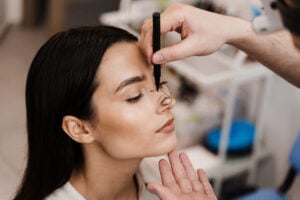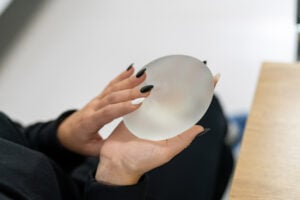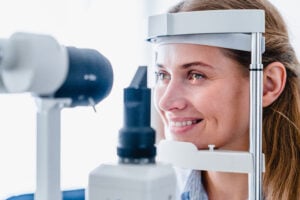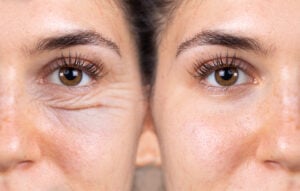Breast reduction surgery involves removing extra tissue, fat and skin from a woman’s breast area. In addition to the nipples being lifted, the breasts are also reshaped. The surgery can take from two to five hours and, in some cases, even longer.
Breast reduction surgery is a fairly common surgical procedure these days to the extent it can often be performed as day surgery.
The operation is often recommended for women whose breasts cause them back or neck pain. Breast reduction surgery can also be performed on men who have conditions such as gynecomastia, where the breasts are enlarged.
In some cases, breast reduction surgery can be performed for free on the NHS for health reasons; otherwise, it can cost approximately £6,500 (plus consultation and follow-ups) if performed at a private hospital.
Breast reduction surgery recovery times
Following surgery, the breasts will feel tight, and the ribs beneath them sore and swollen. Nevertheless, the majority of women who have breast reduction surgery are fine to return to work after a week’s rest. Some people may need another week, depending on individual cases.
Follow-up appointments will be required to remove bandages and check stitches. According to Texas-based plastic surgeon Dr Jane M. Rowley, MD, wound-healing can take up to eight weeks.
“Healing is an inflammatory response,” she said, “and you basically swell for 2-3 days, and it takes at least eight weeks for the swelling to resolve.
“Sutures hold the wound together initially, but as your body heals, your wound becomes stronger. The wounds have about 70% strength at 3-4 weeks post-op and 90% after 6-8 weeks. Scar tissue then remodels itself and changes, flattening out over one to two years.”
Tips for a faster and easier recovery
It always makes sense to prepare for surgery, especially when you have been advised to rest for up to one week afterwards. Because of this, there’s no shame in asking a friend or family member to help you out with everyday tasks during your recovery. This includes helping to make meals, walk the dog, take out the bin etc.
Here are other tips to help make that post-surgery period as smooth as possible:
1. Cease, then build up to physical activity
Physical activity should be carefully managed for at least a month following a breast reduction operation. Certainly, avoid lifting heavy objects (it could make scarring worse). It’s fine to walk every day since this improves circulation, helps your body to heal and prevents any potentially dangerous blood clot complications.
Light activities – and sexual intercourse – should only be performed after a fortnight, and don’t expect a return to total physical exertion until six weeks after the surgery has been performed.
2. Keep the chest uplifted
Making sure you are sitting and lying in the right position will ease any pain in the weeks following surgery, as well as reducing the swelling and bruising
Sit upright in a chair and when sleeping, try to keep your chest elevated by placing several pillows under the torso when lying on a recliner.
3. Pain killers can help
If pain is causing too much discomfort following surgery, then an over-the-counter pain killer can be used to ease this. This includes tablet medication such as paracetamol, ibuprofen and weak opioids eg Dihydrocodeine.
Your surgeon will advise on a pain management plan. Don’t feel bad contacting him or her if you feel their pain management isn’t effective. It’s better to ask them about taking over-the-counter medication in case of adverse effects.
Discover Health Tourism Worldwide
4. Stop smoking
If you smoke, then it’s important to try to stop both after and pre-surgery. That’s because, amongst other things, smoking slows down the healing process, meaning you will feel discomfort for longer.
Smoking – whether you are smoking yourself or have smokers around you – can also cause scar deformity.
5. Refrain from gaining weight
Admittedly, this isn’t an immediate post-op tip you can get to work on, but it does help your recovery to eat healthily. That means plenty of fruit and veg and cutting back on sugar and fried food. In fact, it’s a good idea to make nutritional meals and freeze them to eat post-surgery.
Putting on weight following breast reduction surgery isn’t a great idea because you won’t be able to see the results of your operation in the best light. The same applies if you fall pregnant since this will cause your breasts to swell.
6. Keep your body hydrated
Not only does drinking plenty of water mean your cells will be able to help with healing, but it will also stop you from becoming constipated and retaining too much fluid (which will slow down your recovery).
Another good point about drinking plenty of water post-surgery is that it will help remove any last traces of anaesthesia left in your body.
Other preventative measures you can take to improve healing after breast reduction surgery include not driving for three weeks (a seat belt can cause discomfort) and avoiding housework chores.
Meanwhile, plastic and breast reconstructive surgeon Gordon Lee, MD is keen to reassure women over fears nipple sensitivity can be reduced post-surgery.
“There’s a small risk that nipple sensation can be reduced or completely absent and numb,” he said, “because nerves can get agitated or are cut during the procedure.
“But in some cases, nipple sensation can be increased.”
According to the British Association of Aesthetic Plastic Surgeons, a total of 4,245 women in the UK had breast reduction surgery in 2019. That makes the treatment the second most popular form of surgery after breast augmentation that year.















